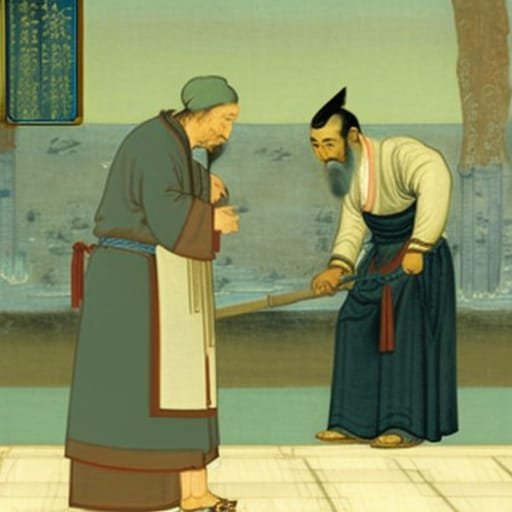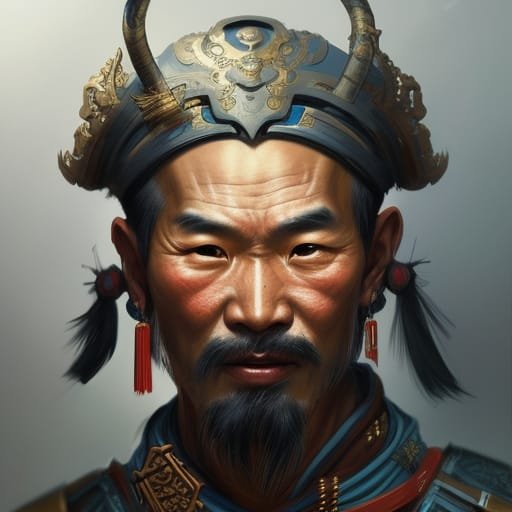
MEDITATIONS: THE DHAMMAPADA, CHAPTER TEN
All tremble at violence;
Life is dear for all.
Seeing others as being like yourself,
Do not kill or cause others to kill.
— Buddha

MEDITATIONS: THE DHAMMAPADA, CHAPTER NINE
Don’t disregard evil, thinking,
“It won’t come back to me!”
With dripping drops of water
Even a water jug is filled.
Little by little,
A fool is filled with evil.
— Buddha

MEDITATIONS: THE DHAMMAPADA, CHAPTER EIGHT
Better than a thousand meaningless statements
Is one meaningful word,
Which, having been heard,
Brings Peace
— Buddha

MEDITATIONS: THE DHAMMAPADA, CHAPTER SEVEN
For someone
At the journey’s end,
Freed from sorrow,
Liberated in all ways,
Released from all bonds,
No Fever exists.
— Buddha

MEDITATIONS: THE DHAMMAPADA, CHAPTER SIX
Like someone pointing to treasure
Is the wise person
Who sees your faults and points them out.
Associate with such a sage.
— Buddha

MEDITATIONS: THE DHAMMAPADA, CHAPTER FIVE
Reasoning is harmful
To fools;
It ruins their good fortune
And splits open their heads
— Buddha

MEDITATIONS: THE DHAMMAPADA, CHAPTER FOUR
Just as from a heap of flowers
Many garlands can be made,
So, you, with your mortal life,
Should do many skillful things.
— Buddha

MEDITATIONS: THE DHAMMAPADA, CHAPTER THREE
For those who are unsteady of mind,
Who do not know true Dharma,
And whose serenity wavers,
Wisdom does not mature.
— Buddha

MEDITATIONS: THE DHAMMAPADA, CHAPTER TWO
Driving away negligence with vigilance,
Ascending the tower of insight and free of sorrow,
A sage observes the sorrowing masses
As someone standing on a mountain observes
fools on the ground below.
— Buddha

MEDITATIONS: THE DHAMMAPADA, CHAPTER ONE
Speak or act with a corrupted mind,
And suffering follows
As the wagon wheel follows the hoof of the ox
— Buddha

MEDITATIONS: FOURTH OF THE FOUR BOOKS
Those who follow that part of themselves which is great are great men; those who follow that part which is little are little men.
— Mencius

MEDITATIONS: Third OF THE FOUR BOOKS
If a man in the morning hear the right way, he may die in the evening without regret.
— Confucius

MEDITATIONS: SECOND OF THE FOUR BOOKS
What Heaven has conferred is called THE NATURE; an accordance with this nature is called THE PATH of duty; the regulation of this path is called INSTRUCTION.
— Confucius

MEDITATIONS: FIRST OF The Four Books
On the bathing tub of T’ang, the following words were engraved: “If you can one day renovate yourself, do so from day to day. Yes, let there be daily renovation.”
— Confucius

MEDITATIONS: ZHUANGZI, CHAPTER THIRTY-THREE
In his aloneness he came and went, joined only by heaven and earth and the purest kernels of imponderable spirit, but still never arrogantly separated himself off from the creatures of the world, for he reprimanded none of their views of right and wrong and thus was able to get along with worldly conventions.
— Zhuangzi

MEDITATIONS: ZHUANGZI; CHAPTER THIRTY-TWO
“It was I who caused your son to become a Mohist! Why, why have you failed to see my good deed? Why do you not visit my grave, where I have already become an autumn fruit hanging from a cypress tree?”
— Zhuangzi

MEDITATIONS: ZHUANGZI; CHAPTER THIRTY-ONE
What worries the Son of Heaven . . . are things like the disharmony of yin and yang . . . Now you, sir, are not in the position of a ruler or feudal lord . . . yet you capriciously take it on yourself to . . . transform and educate all people equally—aren’t you being way too much of a busybody?”
— Zhuangzi

MEDITATIONS: ZHUANGZI, CHAPTER THIRTY
“I have heard that your majesty has a liking for the play of the sword, so I have come to meet with you on the strength of my swordplay. . . . This is a swordplay that displays false appearances to the opponent, leading him on with the lure of gain, thrusting forth only after he does, but preceding him in landing the blow.”
— Zhuangzi

MEDITATIONS: ZHUANGZI, CHAPTER TWENTY-NINE
“Anyone who can be regulated with promises of profit and admonished with slick words is what I would call a stupid, ignorant, ordinary sort of person.”
— Robber Zhi
Zhuangzi

MEDITATIONS: ZHUANGZI, CHAPTER TWENTY-EIGHT
Well, if you can’t help it, then just go with it; do not hate the imponderable spirit in you! If you cannot control your longings, but then you force yourself not to obey them, this is called a double injury.
— Zhuangzi